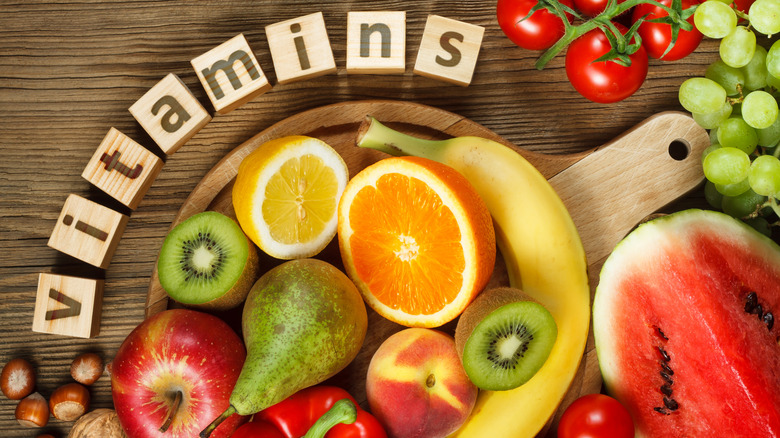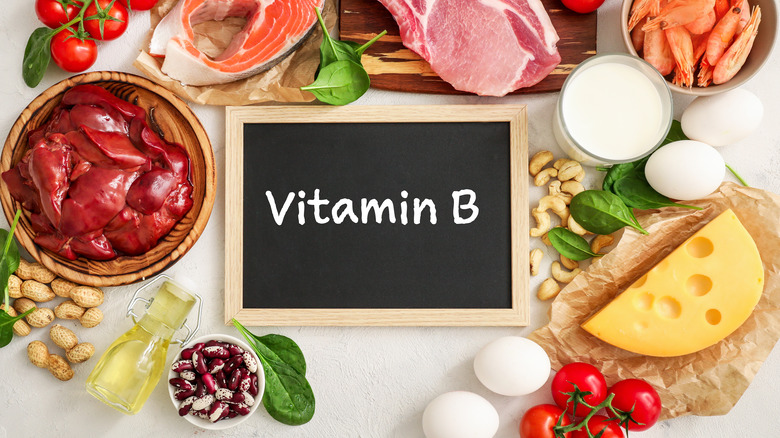Water-Soluble Vitamins Explained
Water-soluble vitamins are different from fat-soluble vitamins because they do not need to be digested with fat in order for your body to absorb them properly. There are nine water-soluble vitamins. Making up this group of vitamins, is vitamin C and all of the various B vitamins (via Verywell Health).
Vitamin C is an essential vitamin, meaning that your body cannot produce it on its own. The nutrient is linked with several health benefits, which occur in part because it is an antioxidant. Antioxidants help your body defend itself against free radical damage, which can lead to a host of health issues, including oxidative stress. In addition, research indicates that vitamin C could help lower high blood pressure and the risk for heart disease. Vitamin C can be found in bell peppers, oranges, broccoli, kiwi, and leafy greens such as spinach and kale (via Healthline). Adults should get at least 90 milligrams of vitamin C daily (via U.S. Food and Drug Administration).
There are eight types of B vitamins
There are a total of eight types of B vitamins: vitamin B12, vitamin B6, thiamine, niacin, riboflavin, biotin, folate, and pantothenic acid (via Verywell Health). Like most other vitamins, the B vitamins play a critical role in helping maintain good health.
Vitamin B12 is essential for nerve function, a healthy metabolism, and DNA production. Vitamin B6 is necessary for brain development and nervous system health, while thiamine helps the body metabolize nutrients and turn them into energy (via Verywell Health). Adults need 2.4 micrograms of B12, 1.7 milligrams of B6, and 1.2 milligrams of thiamine daily (via U.S. Food and Drug Administration).
The body also needs riboflavin and niacin to help keep skin healthy. The daily recommended dose of riboflavin for adults is 1.3 milligrams and 16 milligrams of niacin. Folate is crucial for pregnant women because it is essential for body and brain development in babies and young children. Healthy adults require 400 micrograms of folate every day. Pantothenic acid aids in healthy cell function including the conversion of energy (via Everyday Health). Biotin is another vitamin that helps turn food into fuel (via National Institutes of Health). The daily recommended dosage of pantothenic acid for adults is 5 milligrams and 30 micrograms of biotin.


